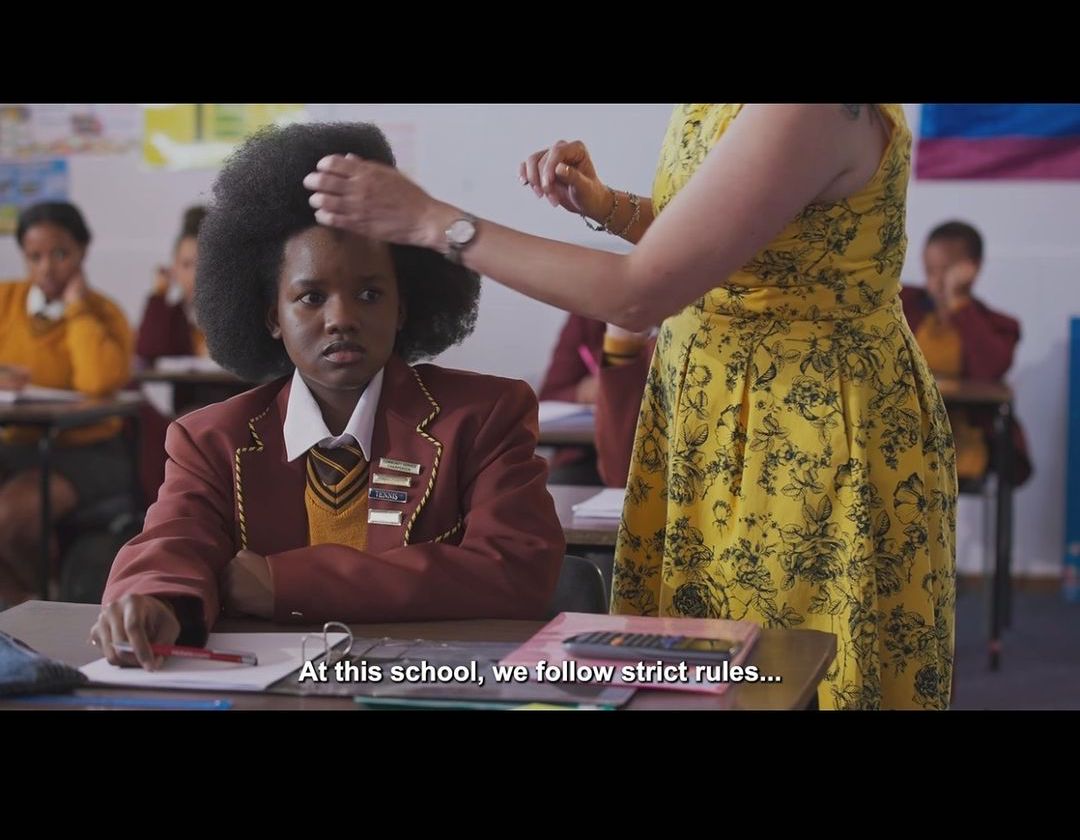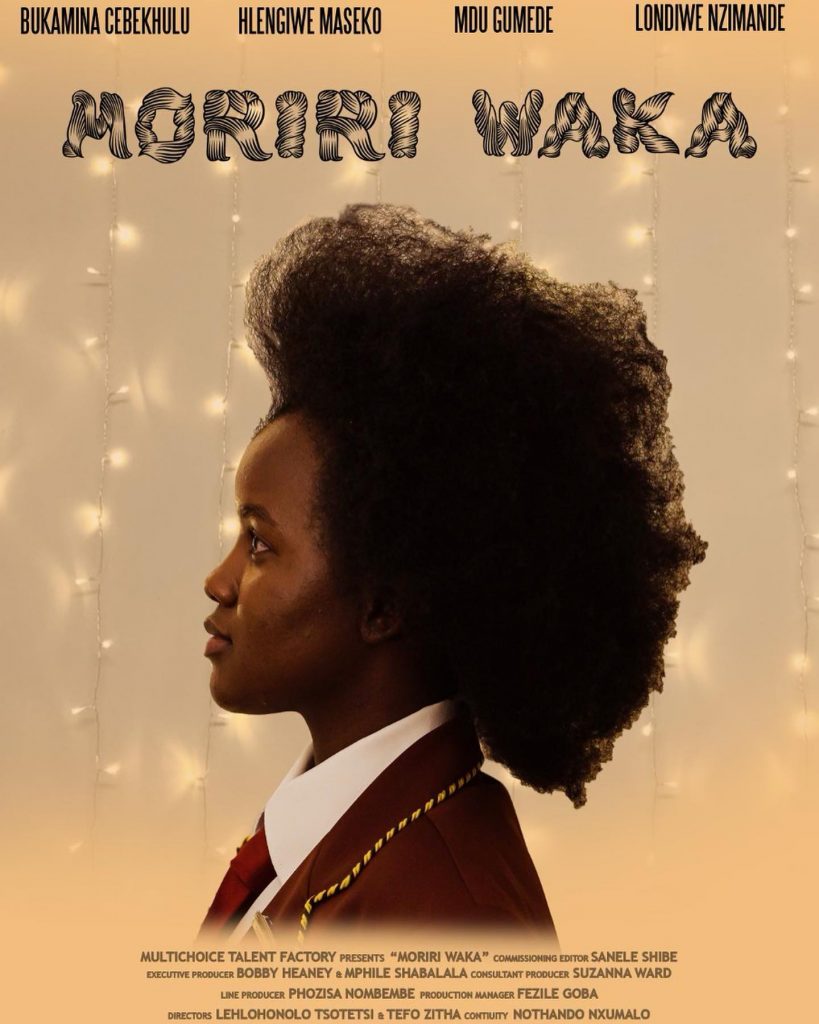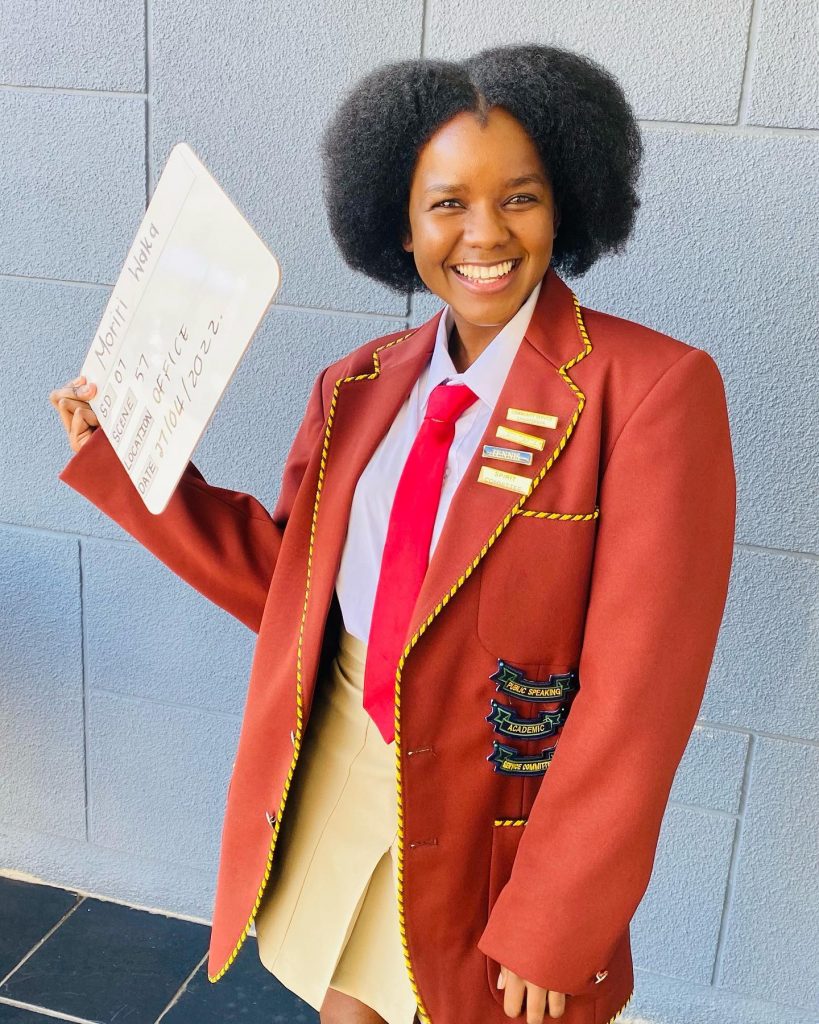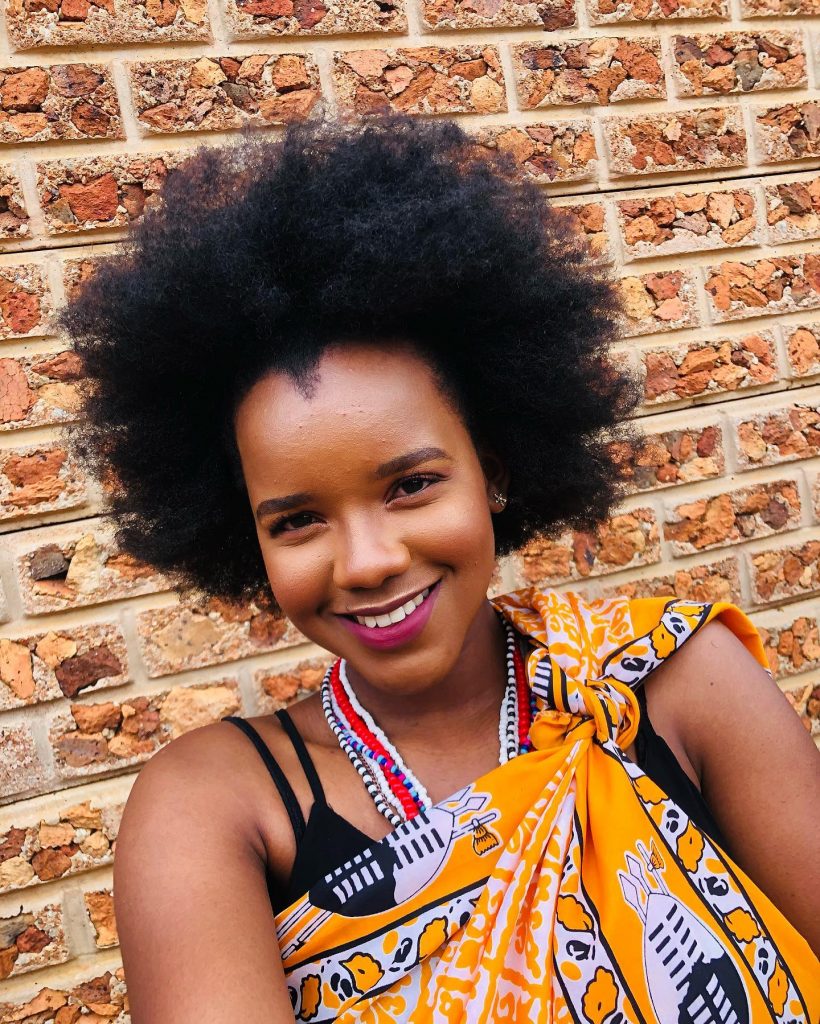
Hair is political. The issue concerning hair has tangled itself into our society and conversations (pun intended). This topical issue has found itself in works of art, literature, academia, politics and in the film ‘Moriri Waka’. When I first read that the film was centred on hair I was intrigued and knew this was something I had to watch.
‘Moriri Waka’ is a drama movie that was made by Multichoice Talent Factory South Africa. The summary reads, “After facing resistance for her natural hair, Liselihle (Hlengiwe Maseko) sets out to change the school’s hair regulations.” To make matters worse for the hero, her mother is the principal of the school who also has her own interests to guard. The film takes us back into the dark world of high school and the film is set in an all-girls high school for that matter. This alone sets a tense atmosphere which is even heightened by the issues of racism and oppression that the lead characters fight passionately to undo. There is even a disturbing scene in which a character places a pencil in Liselihle’s wild afro. She even states that “My hair is my identity”. Her identity will be the cause of a lot of pushback and sidelining.
Liselihle is reminiscent of people who have faced oppression but stood up for a greater cause; in the words of the age old song “to march into hell for a heavenly cause”. While watching the film Liselihle will remind you of her fellow countryman Nelson Mandela who did not sit and accept their reality but fought for the future they wanted. Maseko’s commitment to her character and role are evident and invites you to empathise with the lead character’s journey.
The film is visually beautiful to watch with decent sets and productions designs. The movie makes use of native South African languages and bits of English dialogue. I love it when African films make use of native languages, the actors are often more comfortable and their delivery is more believable. In classical South African style the students also stage a protest.


While I was watching this film and seeing the students fight for their rights I was brought to the 1976 student uprising in Soweto, South Africa. It always takes a leader to bring about the change we want. Apart from being a leader it also takes courage and conviction in one’s truth that influences true and lasting change. I recommend this film because I believe it can bring about conversations of change and tearing of the walls of oppression that we still largely face. The movie premiered on Mzansi Magic.



